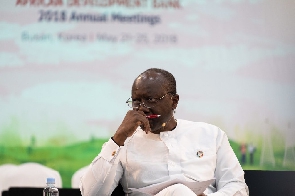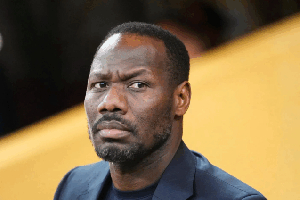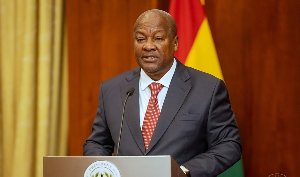Mr Clement Osei-Amoako, President of the Ghana National Chamber of Commerce and Industry (GNCCI), says the Chamber is looking at ways to reposition its members after the Domestic Debt Exchange Programme (DDEP).
He said every government action had its consequences on the private sector and the economy at large, hence the assembly of views from academia and practitioners as to how to surmount the issues going forward.
Mr Osei-Amoako was speaking at the maiden edition of the Chamber National Dialogue on the theme: “Impact of the DDEP on the Private Sector of Ghana,” in Accra.
The initiative provided an advocacy platform for businessmen and women, industry, experts, academics, policymakers, and the media to address topical economic issues aimed at promoting a conducive business environment.
He said the dialogue also aimed at engaging in a constructive and productive conversation about the impact of the DDEP on the private sector of Ghana, and to explore the necessary business strategies and policy adjustments to mitigate losses.
The President said the state of the Ghanaian economy was a major concern for stakeholders, which demanded steps to be taken to achieve lasting solutions to these structural and cyclical issues: high inflation, rising interest rates, cedi depreciation, and tightening policy rate, among others.
Mr Osei-Amoako said the Chamber’s analysis on the 2021 audited financial statement of 22 commercial banks revealed that over 50 per cent of the total assets of six commercial banks were exposed to government bonds and treasury bills.
“Over 70 percent of six commercial banks’ total deposits were exposed to investment securities in government bonds and treasury bills,” he added.
He said overall, a minimum of two-thirds of total deposits were exposed to government bonds and treasury bills across half of the commercial banks.
“Therefore, striking a delicate balance to mitigate the inherent losses of the DDEP with the corresponding adjustments in fiscal and monetary policies will be decisive in the way forward,” he said
He said a successful implementation of the Programme must consider the specific and overall impact on the Ghanaian economy.
Mr Osei-Amoako said as the representative organ of the private sector in Ghana, the GNCCI acknowledged the importance of the DDEP to restore macroeconomic stability and protect the most vulnerable in society.
He said the GNCCI would support and guide the government with the knowledge and insights towards monitoring and effecting the requisite adjustments in building a conducive business environment.
Mr Osei-Amoako assured its members of the Chamber’s strong reputation and goodwill with state and non-state actors, both local and international, to achieve targeted results in the interest of the business community.
He said the GNCCI remained committed to promoting and protecting commercial and industrial interests in the country and working with government and other stakeholders to improve the business environment.
Mr Peter Quartey, Director of the Institute for Statistical Social and Economic Research (ISSER) at University of Ghana, said there was the need to set up a fund, where businesses which needed some advisory and other forms of support could access it.
He said so far, there was one for banks, but there was the need for an extension to the individuals, companies and other businesses that may suffer a loss as a result of the DDEP.
Mr Quartey said with the external bondholders, there was a consultant from France who had engaged them already while the DDEP was ongoing.
He said the only challenge was that there were many creditors, so the stage of bringing them together would be a challenge.
Mr Quartey said the finance minister was going to engage with China, and that there was also the need to engage with other bilateral donors for consensus to be built before communication.
Business News of Thursday, 23 February 2023
Source: GNA













